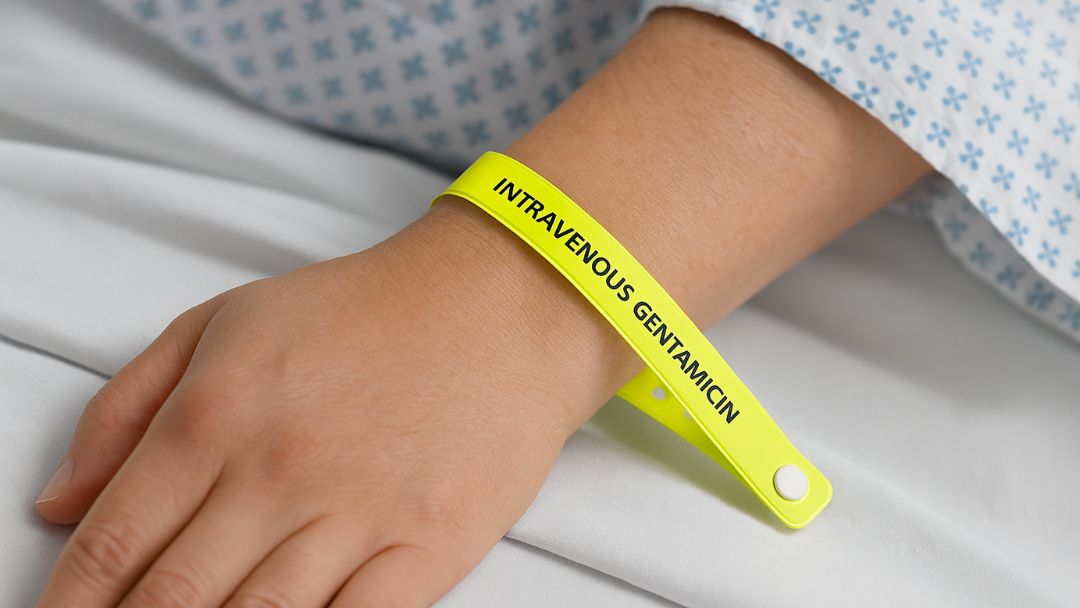A new patient safety initiative is currently being trialed at University Hospital Wishaw to reduce the risk of double dosing intravenous gentamicin – a high-risk antibiotic that, if incorrectly administered, can cause serious harm.
From 12 May, the use of yellow Intravenous Gentamicin wristbands will be rolled out across all adult inpatient areas in University Hospital Wishaw, following a successful two-week pilot in the Emergency Department, Medical Assessment Unit, Ambulatory Care and the Hospital at Home team.
The project has been developed as a proactive measure to help prevent the risk of patients receiving more than one dose of gentamicin within a 24-hour period – something that can potentially occur during transfers between wards or services.
The aim is to enhance patient safety by ensuring better communication and clear visual identification for those receiving this high-risk medication.
Gary Lynas, Clinical Pharmacist for Antimicrobial and Stroke, explained the importance of raising awareness and improving communication between teams: “Gentamicin is a highly effective antibiotic but it carries risks. The wristbands help reduce the risk of double dosing, particularly when patients move between areas. The wristbands are a simple but effective tool to flag up that a patient is on gentamicin, prompting staff to check the last dose time and avoid duplication.
“Wristbands offer a useful visual prompt to reinforce vigilance and discussion about dose timing, but they must never replace thorough handover and chart verification—the presence or absence of a yellow band alone is not proof that a patient is receiving intravenous gentamicin.”
All adult patients prescribed or administered intravenous gentamicin must now have a yellow wristband applied. These should be removed once treatment is discontinued. The new process is supported by a standard operating procedure and awareness materials such as posters and banners placed with ward stock.
Gary added: “The pilot has allowed us to test the process and listen to staff feedback. We’re now moving forward with full implementation at Wishaw to support safer prescribing and administration. Staff communication is always of vital importance. These wristbands are an extra opportunity for staff to communicate with each other to ensure the safety of our patients.”
Further supplies of the wristbands can be ordered through the usual stationery channels.
For questions or support, please contact your local clinical or antimicrobial pharmacist.



